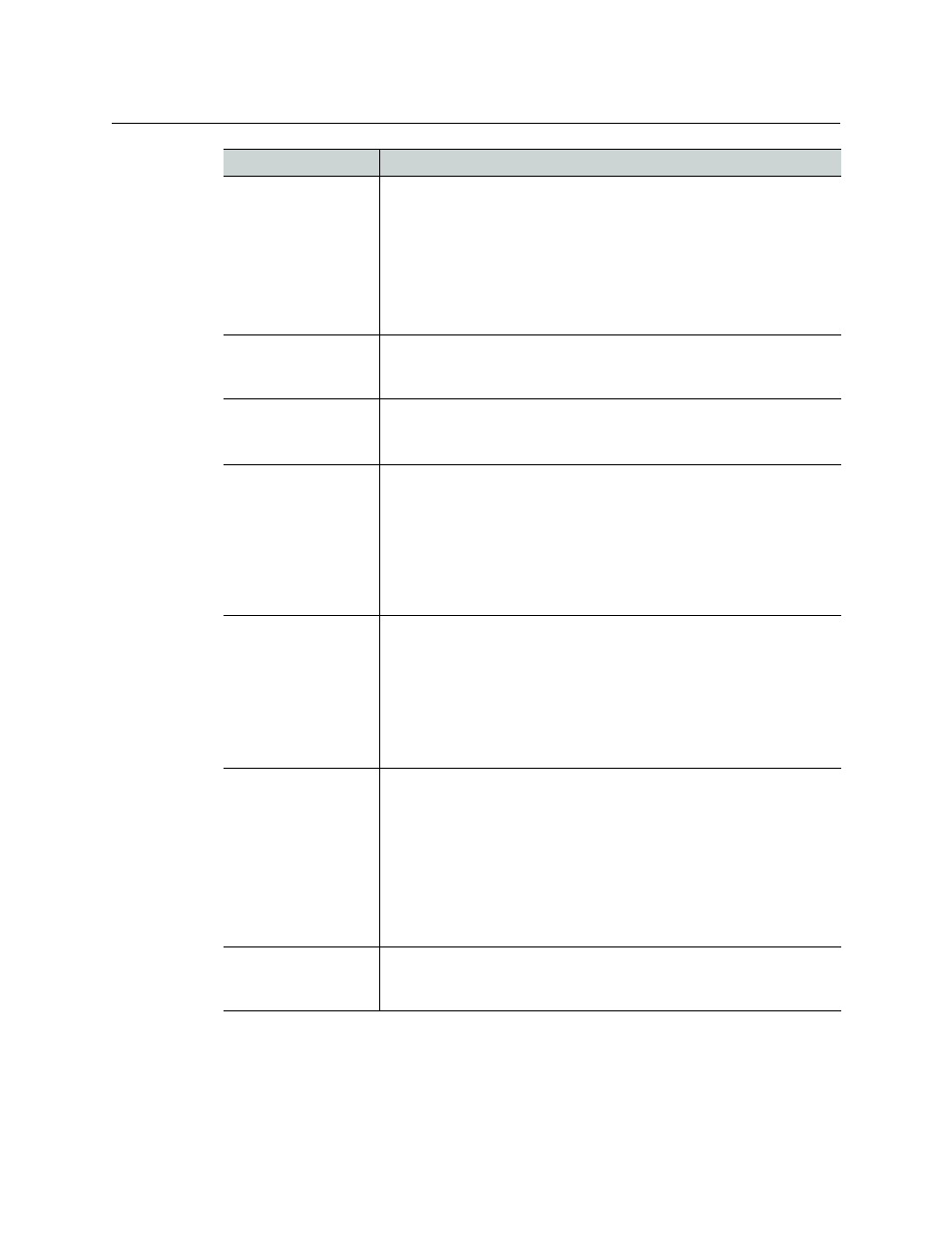Grass Valley SSP-3801 User Guide v.1.3 User Manual
Page 56

52
Monitoring the SSP-3801 Card’s Status
About System Alarms
GV STRATUS Playout
• Synchronization Status: Displays the synchronization status between
the SSP-3801 card and the
GV STRATUS Playout service
. The alarm
triggers if the SSP-3801 card is no longer in sync with
GV STRATUS
Playout.
• Time Difference Status: Displays the time difference (in milliseconds)
between
GV STRATUS Playout
time and the card’s internal time. The
alarm triggers if the time difference between the two is greater than
30 seconds (30,000 milliseconds).
Router
• Router Connection Failure: Displays the connection status for the
router. The alarm triggers when the communication between the
SSP-3801 card and the configured external video router is failing.
Hot Swap Settings
Out of Date
Displays the status of the restore point to identify if the Identity
settings have changed (true/false). The alarm triggers if the status
is True, which indicates that a new restore point must be created.
Temperature Failure
Displays the status of the card’s internal temperature. The alarm
triggers when the
SSP-3801 card
has detected that the internal
temperature has exceeded the following ranges:
• FPGA Temperature is above 85
o
C or below 10
o
C
• CPU Temperature is above 85
o
C or below 10
o
C
• Board Temperature is above 65
o
C or below 10
o
C
The alarm generates an error message to describe the issue.
System Failure
Displays the system status. The alarm triggers if one of the following
occurs:
• CPU or FPGA fan failure (the fan stalls)
• Board power usage is above 45 Watts or below 25 Watts
• FPGA VCC_INT is above 1.05 Volts or below 0.95 Volts
• FPGA VCC_AUX is above 2.625 Volts or below 2.375 Volts
The alarm generates an error message to describe the issue.
SSD
• Wear Level (Primary Disk): Displays the physical condition of the
primary solid state disk (SSD). As the disks continue to be written
upon, over time parts of the disks become worn and unusable. The
alarm triggers when the wear level is over 90%.
• Wear Level (Secondary Disk): Displays the physical condition of the
secondary solid state disks (SSD). The alarm triggers when the wear
level is over 90%.
• Usage: Displays the amount of the media storage is currently in use.
The alarm triggers when the usage is over 90%.
Logging Rate
Displays the rate (in kilobytes per second) that the card processes log
messages. The alarm triggers if the value is higher than 50 kilobytes
per second.
Alarm Type
Alarm Conditions
